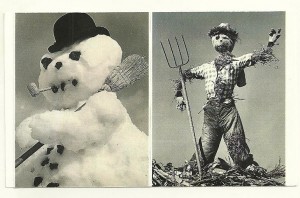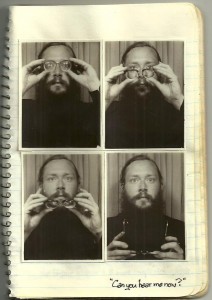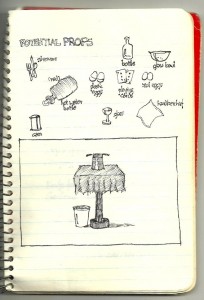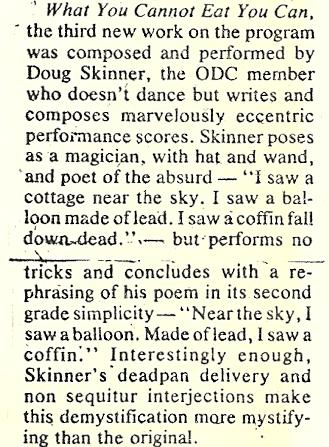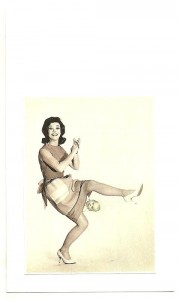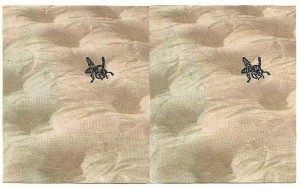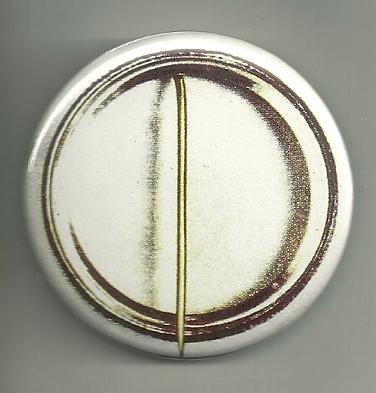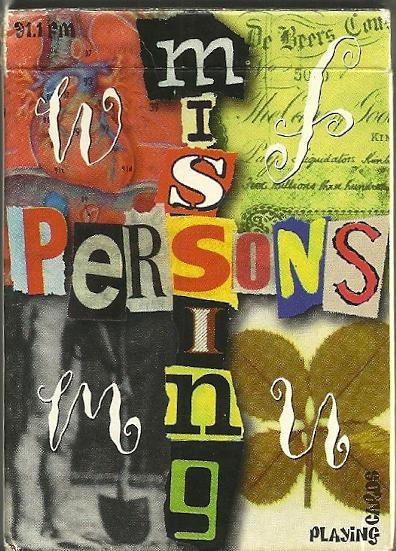Elitist
May 23rd, 2013 · 2 Comments
→ 2 CommentsTags: *Cartoons · *Sketchbook · E
Radio
May 22nd, 2013 · Comments Off on Radio
A song about falling asleep with the radio on. As the chorus reminds us, You’ve got to wake up to turn the radio off.
Comments Off on RadioTags: *Music · R
Index Cards (44)
May 20th, 2013 · 1 Comment
→ 1 CommentTags: *Index Cards
What You Cannot Eat You Can
May 16th, 2013 · 4 Comments
“What You Cannot Eat You Can” was a solo performance piece I did with the Oberlin Dance Collective back in 1977, out in San Francisco. It involved found verses, non-magic tricks, painted plastic eggs, and water; in the course of it, I changed a set of riddles into their answers. Here are a few pages from my notebooks for the piece, including a rare photo of my 1977 beard, followed by a review from Nancy Steele, The Daily Californian, 12/16/77.
→ 4 CommentsTags: *Stage · W
Index Cards (43)
May 13th, 2013 · 2 Comments
→ 2 CommentsTags: *Index Cards
How I Became an Idiot
May 9th, 2013 · Comments Off on How I Became an Idiot
Francisque Sarcey (1827-1899) was, for much of his career, the most powerful theatrical critic in Paris. He was the perfect model of the blunt bourgeois, championing common sense, anti-intellectualism, and traditional values. He favored light, commercial fare, and railed against Ibsen and Jarry.
He was, predictably, a prime target for young artists. Alphonse Allais took the ridicule to new heights: from 1886 to 1893, he wrote a regular column for Le Chat Noir, which he simply signed as Francisque Sarcey. The pseudo-Sarcey became a grotesque caricature of the smug middle class, a sort of proto-Ubu: an obese, gluttonous, lecherous, hypocritical dolt, prattling on about his constipation and hemorrhoids, in loosely-knit sentences studded with clichés.
“How I Became an Idiot” collects four of Allais’s nastiest columns, translated, introduced and annotated by Doug Skinner. It’s available in a limited edition of 60 from Black Scat Books. None of this material has appeared in English before: snap one up!
Comments Off on How I Became an IdiotTags: *Words · H
Ding Dong Bell
May 8th, 2013 · Comments Off on Ding Dong Bell
Comments Off on Ding Dong BellTags: *Music · D
Index Cards (42)
May 6th, 2013 · Comments Off on Index Cards (42)
Some low-tech stereoscopy: cross your eyes to see the fly hover over the bed. It will probably work better if you click to enlarge it first.
Comments Off on Index Cards (42)Tags: *Index Cards
Button Button
May 3rd, 2013 · 2 Comments
→ 2 CommentsTags: *Other · B
Missing Persons Deck
May 2nd, 2013 · 2 Comments
In 1996, listener-sponsored radio station WFMU issued a set of playing cards as a premium for subscribers. The theme was “Missing Persons,” and each card illustrated someone who had disappeared. I was assigned the clubs, and drew each from the viewpoint of the person who vanished. The ace and face cards were drawn by other artists (George Erling, Krystine Kryttre, Diane Farris, Chris Ware); the box above was by Wm Graef. A 60 page booklet told the stories.
Here are my cards, with a key below (and, as always, I hope you realize that you can click to enlarge).
2: Karl Hunrath and Wilbur J. Wilkinson, UFO buffs who planned to meet with aliens from the planet Masar; their plane was found abandoned in the desert. (1953)
3: Dr. Ludwig Leichhardt, who never returned from searching for giant wombats in Australia. (1848)
4: Rudolf Diesel, who went missing on a ship crossing the English Channel. (1913)
5: Carl Robert Disch, who disappeared between two buildings in Antarctica. (1965)
6: Owen Parfitt, a crippled elderly man who vanished after his sister propped him up in a chair outside, and went inside for fifteen minutes. (1768)
7: Harold Holt, Australian Prime Minister who never came back from a swim; a shark is suspected. (1967)
8: Louis XVII, the “lost dauphin,” shown here spirited away in a basket. (1792)
9: The Roanoke Colony, English settlers in North America, who abandoned their settlement, leaving a post inscribed with the word CROATOAN. (1590)
10: Dorothy Arnold, an heiress who disappeared among puzzling circumstances; Charles Fort suggested that she had turned into a swan. (1910)
→ 2 CommentsTags: *Cartoons · M



